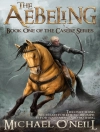In ‘Magic, ‘ G. K. Chesterton explores the intersection of the mundane and the mystical, weaving together essays that illuminate the enchantment hidden within everyday life. Through a blend of whimsical prose and profound philosophical inquiry, Chesterton delves into the nature of magic as it manifests in various cultural contexts, examining its capacity to reveal the wonder in the ordinary. The literary style is distinctly Chestertonian—richly rhetorical, filled with paradoxes, and imbued with a playful tone that invites the reader to reconsider familiar assumptions, making it a compelling read amidst the early 20th-century backdrop of skepticism and scientific rationalism. G. K. Chesterton, a prominent English writer, and thinker, was known for his keen observations on faith, society, and the human experience. His own background in journalism and literary criticism, along with a lifelong fascination with the supernatural and the absurd, informed his approach to ‘Magic.’ His conversion to Christianity and deep appreciation for tradition lend a unique perspective on the concept of magic, intertwining it with themes of spirituality and wonder. This book is highly recommended for readers intrigued by the intersection of philosophy and literature. Chesterton’s rich language and insightful observations will resonate with those seeking to rediscover the magic in their own lives, urging them to look beyond the veil of the ordinary and embrace the fantastical elements often overlooked in modern society.
About the author
G.K. Chesterton (1874–1936) was an eminent English writer, poet, philosopher, dramatist, journalist, orator, literary and art critic, biographer, and Christian apologist. Renowned for his distinctive wit and profound insights, Chesterton’s writing remains enduringly popular and influential. His vast bibliography spans various genres, with notable works such as ‘The Man Who Was Thursday’ and ‘Orthodoxy’ showcasing his talent for weaving theology, philosophy, and humor. His fictional detective, Father Brown, is a beloved character in the canon of mystery literature, debuting in ‘The Innocence of Father Brown.’ ‘Magic, ‘ a play by Chesterton, echoes his penchant for blending the fantastical with trenchant social critique, allowing readers to explore philosophical and moral quandaries through a mystical lens. Chesterton’s style is characterized by paradoxical wit and a proclivity for discussing serious subjects with a light-hearted tone. Despite writing in a different era, his thoughts on faith, reason, and the human condition continue to resonate with contemporary audiences. Chesterton’s influence extends to a multitude of writers and thinkers across the literary spectrum, cementing his legacy as a central figure in 20th-century literature.












